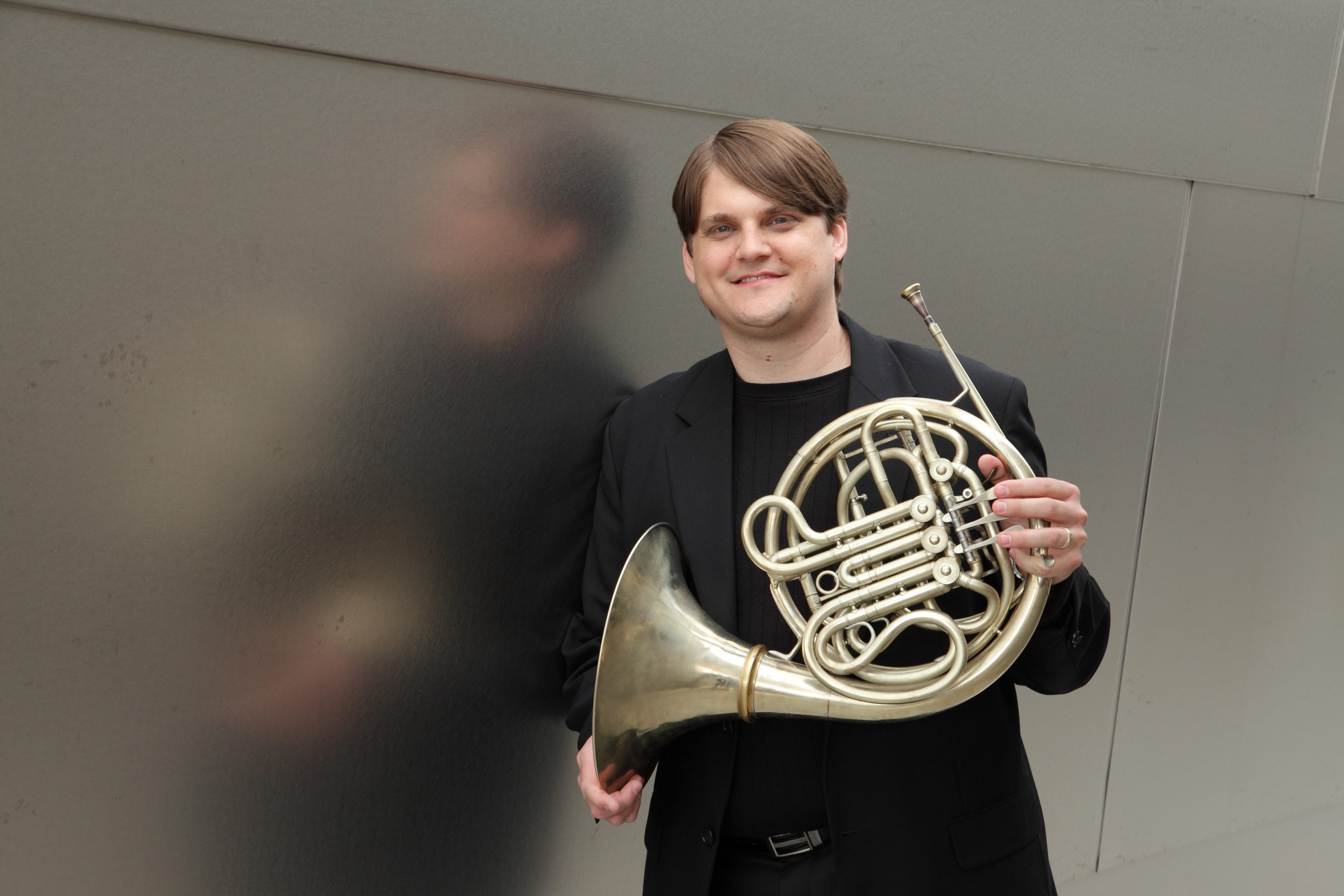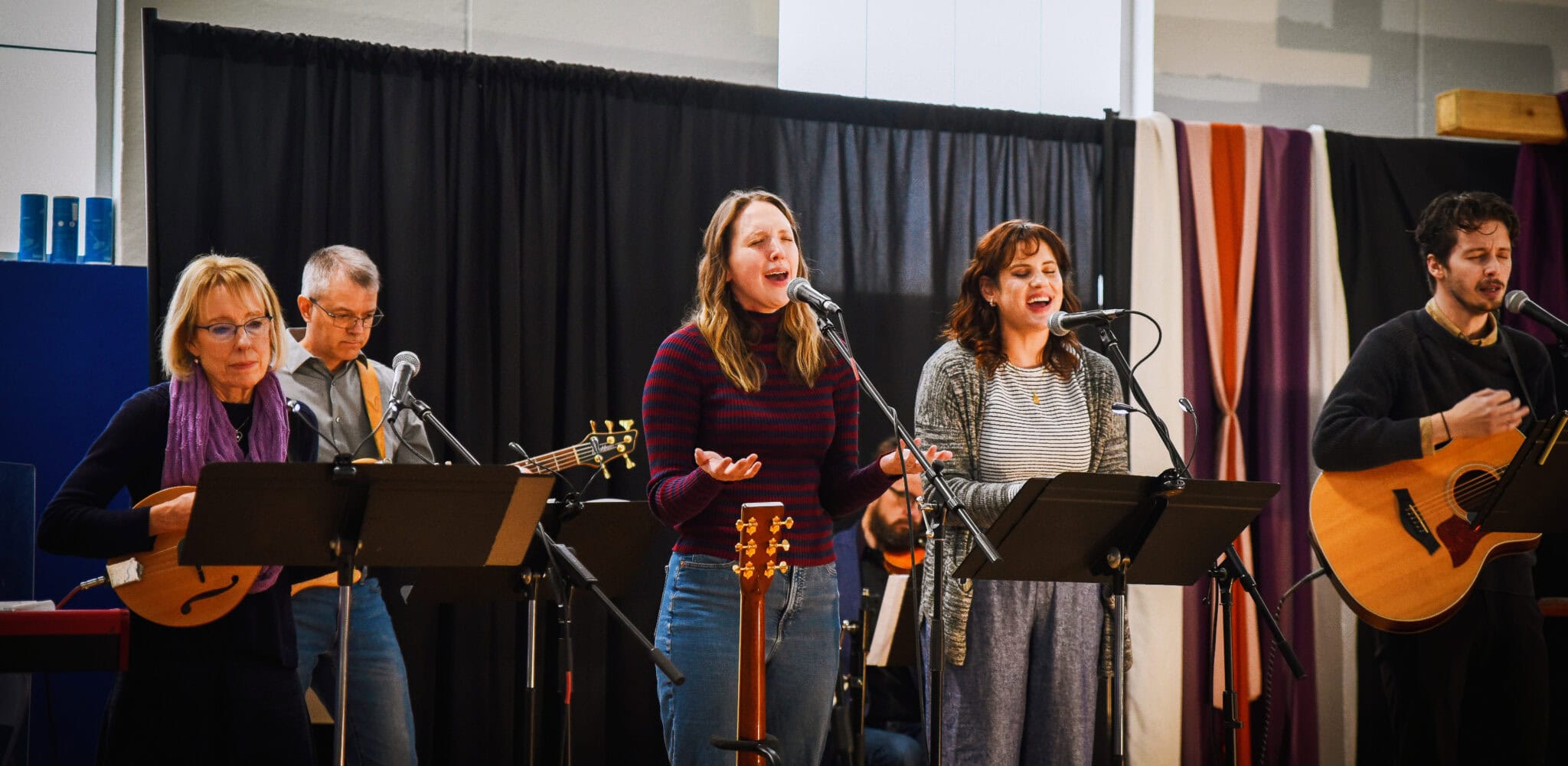by The Rev. Canon Steven Tighe, Provincial Canon for Youth Ministry
As a French Horn player with the Los Angeles Philharmonic, Eric Overholt lived moments that can legitimately be described as glamorous. He played the Luke Skywalker solo from Star Wars at the Hollywood bowl, for 18,000 light-saber wielding fans. He’s played in the orchestra for movies that you’d recognize. It was his “dream job,” one that he had been pursuing since high school when he discovered a gift for the French Horn. That gift took him through a music degree at Baylor (where he was first introduced to Anglicanism), to a Master’s degree at The Juilliard School in New York, and eventually to a position with one of the finest orchestras in the world.
It all fell apart in 2013 when he developed a neurological condition that affected only his French Horn playing. After a very difficult three years of treatment and rehabilitation, he came to a realization:
“When things started to fall apart, I was desperate. Losing the ability to play French Horn was like losing my identity. It was the beginning of a wrenching transition, and I’d like to say that the transition was a beautiful story of self-surrender, but it wasn’t. I was frustrated and angry and disappointed. When I finally gave up and put my horn down, I just started digging ditches. I spent three months with a pick and a shovel in my back yard trying to work through my frustration with God and with life.”
He came across a podcast from Phil Vischer, the creator of Veggie Tales, who described his own personal collapse as he lost Veggie Tales. Eric could relate as Vischer spoke of digging, listening, laughing, and weeping all at the same time, as he struggled with his own identity and relationship with God.
Can you say a few words about your faith up until that point?
I came to faith early. I grew up in the church, and I remember responding to an altar call at a children’s camp. From that point on, my desire was to follow Jesus. And in fact, I had always believed that He was calling me into music. It’s not exactly a stretch to see acceptance into Juilliard, or winning a job in the LA Philharmonic as an act of God! But now all of that was gone, and as I dug my ditch, I slowly began to realize that Jesus wants our surrender. What he wants most of all is a real relationship with us – to first walk in the garden with him, and only then does he want our work with him in the world.
How did you get from digging ditches to working with teenagers?
One of my most important early faith influences was a great youth minister in the Junior High ministry of the church I grew up in in Oklahoma City. He cared about us, mentored us, and raised us up as leaders in the group. That had a profound effect on my life and my faith, and since college, I’ve almost always volunteered with the youth group at the church I attended. When I realized that God was asking me to lay down my French Horn, it slowly dawned on me that He might be calling me into full time ministry at St. Luke’s Anglican in La Crescenta, California – a big part of that with teenagers.
That sounds very different from your work in music!
It was an exciting life, and I loved playing what I consider the greatest music ever written with some of the most gifted musicians ever to play it. I still miss it. But now, God is teaching me that such a life pales in comparison to talking about Jesus with a thirteen-year-old, or laying hands on a high-schooler and seeing them filled with the Holy Spirit. That is life-changing stuff.
Teenagers have a hard time these days. I mean, every Christian has the pressure to live a worldly life, but kids are so much more vulnerable. The pressures are immense: get straight “A’s”, get into a good college, be cool in the eyes of their friends. They’re desperate for adults in their lives who take a real interest in them as people; who can introduce them to Jesus; who walk together with them through their teenage years.
What do you think the Anglican Church has to offer teenagers?
Alot! I feel really fortunate to be in the Anglican church, and I think the Book of Common Prayer that Thomas Cranmer put together was the result of a profound move of God. When I was first exposed to Anglicanism in college, I was amazed to find all these resources for my devotional life: the readings, the liturgy, and prayers that God still uses to draw me into his presence and plan.
That said, I think the greatest gift Anglicanism has to offer young people is the breadth of possible spiritual expression within our traditions: all the way from the rich, somber symbolism of Anglo-catholic sacramental worship to the charismatic excitement of hearing the voice of God at a concert or seeing him heal someone through our teenager’s prayers. There’s so much room for them to explore their relationship with God and their faith and service, all within the bounds of Biblical orthodoxy.
How do you think the Church can do a better job of engaging our young people?
A good youth ministry is a huge engine of growth for a congregation, and I’m seeing that at St. Luke’s. Teenagers who are following Jesus bring such vitality to the church; they have an energy for living that’s infectious.
Youth ministry works best when parents and the church are in partnership. So, parents: stay invested in the spiritual lives of your children, even if it seems like they don’t want you to. You may not see it or feel like it, but you really are the most important spiritual influence in your kids’ lives. Stay in communication with the adults that are discipling your teenager.
I’d tell teenagers what I tell my kids: go to Jesus. If you have questions, go to Jesus. If you have problems, go to Jesus. There really are answers to life’s problems, and He’s got them. Learn about Him in the Scriptures. Life with Him is more whole, more full, and yes, even more fun!
Any last comments?
Yes. Teenagers: if you don’t have a youth pastor at your church, go to your rector and put them on the spot and tell them that you want them to disciple you. Just tell them that you want to learn how to read the Bible and pray.
Rectors: talk to the teenagers in your congregation, next Sunday ask them how things are going. They won’t say much at first, but when you continue to ask each week, they’ll begin to trust that you really are interested and begin to let you in. Keep at it!
And finally, please pray for me. I fail so much more often than I succeed, but I want to live my testimony that Jesus is enough and to really believe that He’s all I need.





